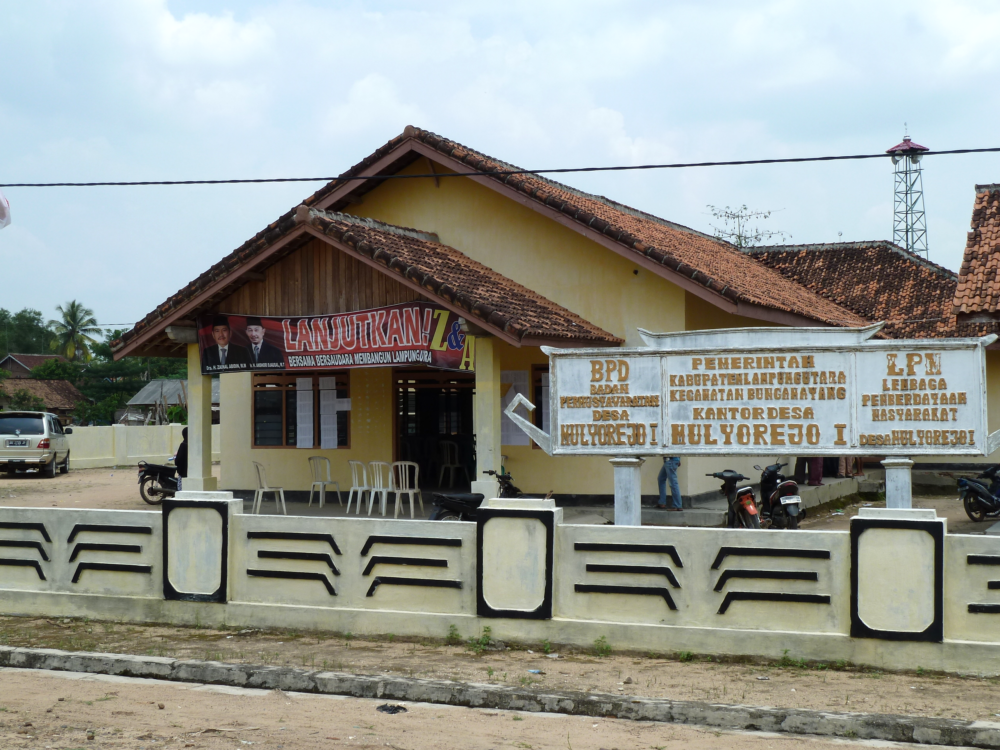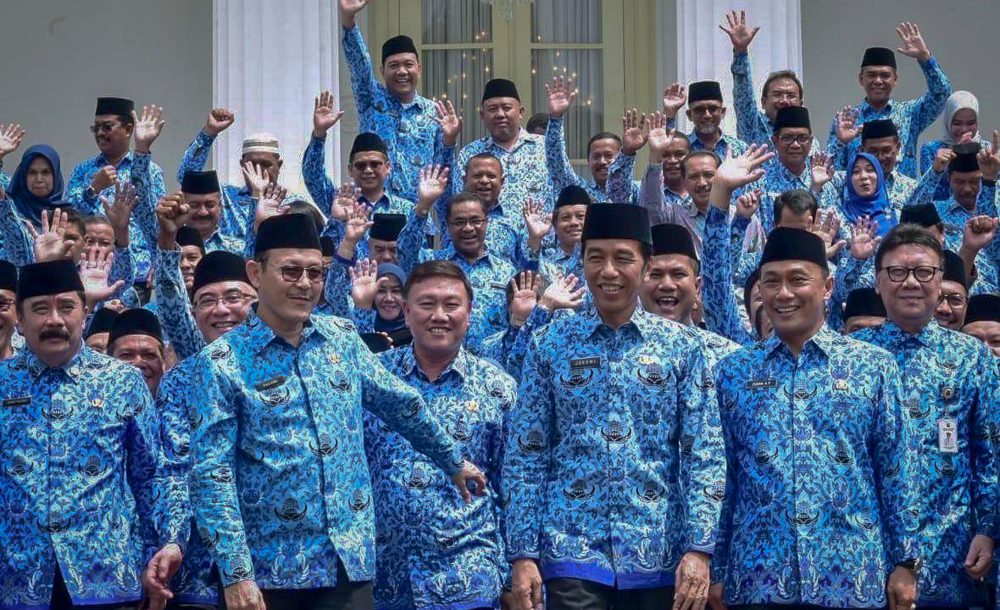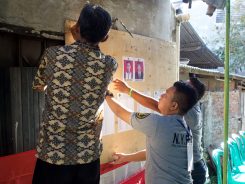Indonesia’s home affairs minister, Tjahjo Kumolo, made quite some headlines last month when he suggested that Indonesia’s civil servants could “socialise” government programs during Indonesia’s current election season. He did hasten to add that civil servants should remain “neutral” and avoid taking sides for either incumbent president Joko Widodo or his challenger Prabowo Subianto. Yet Tjahjo’s pronouncement was met with anger from Prabowo supporters. They felt that any publicisation of government programs would give Joko Widodo an unfair advantage. Tjahjo’s comments fed into a long-standing fear that incumbent politicians use bureaucrats to canvass on their behalf. This would advantage the president, as a challenger like Prabowo does not have a structural connection with local bureaucracies.
There are good historical reasons behind such concerns. During the New Order, Suharto’s political vehicle Golkar made active use of bureaucrats. All local state representatives, from district heads and department heads to village heads to neighbourhood heads, were expected to show their “mono-loyalty” by supporting Golkar during election campaigns. After the fall of Suharto active measures were taken to end such bureaucratic campaigning. Since 2004, the law on regional government has contained a provision that explicitly forbids civil servants and village heads from supporting candidates during elections.
So how serious is this problem? Do incumbent politicians indeed make use of bureaucrats during election campaigns, and does that give them an electoral advantage? I took on these questions in 2014, when I implemented an expert survey in 38 districts across Indonesia. With the help of 35 Indonesian academics I interviewed 509 local journalists, academics, NGO activists and campaign organisers about the character of election campaigns in their districts. The advantage of this research method is that it allows for an assessment of more secretive, hard-to-measure aspects of politics—such as the participation of civil servants in election campaigns. Most of this survey focussed on exploring the clientelistic nature of election campaigns and its variation across Indonesia—a topic Edward Aspinall and I take up in a recent book, Democracy for Sale: Elections, Clientelism, and the State in Indonesia.
But the survey also contained questions about the participation of bureaucrats in election campaigns. We asked political observers to assess to what extent district and provincial bureaucrats actively supported candidates during election campaigns. Such campaign support is perceived to be surprisingly common. Most local observers estimated that between 40–60% of all higher-level district bureaucrats participated in election campaigns for district head and governor. In cities in Java like Jakarta and Bandung, respondents on average estimated that only 25–50% of senior civil servants were involved in campaigning; in some outer-island locations such as Makassar (Sulawesi), Samarinda (Kalimantan), and Jayawijaya (Papua) all or almost all experts believed that between 75–100% of bureaucrats engaged in politics in this way. This would put the legal prohibition of such campaign involvement high on the list of most commonly violated Indonesian laws.
Furthermore, we found that such campaign support was often considered important for bureaucrats to secure a promotion. Fewer than 1% of respondents said there were no political appointments in local bureaucracies, while more than half of all observers estimated that 40% or more of all senior appointments were due to the support these civil servants had offered to a candidate during an election campaign.
When I followed local politicians on the campaign trail in Lampung, Banten and Central Kalimantan I found a similar pattern. I came across village heads who placed banners of their candidate above the village office. I met department heads who toured villages to tell people how successful the electrification program of the incumbent district head was. I saw how sub-district (kecamatan) heads organised local campaign events, and I met village heads who pasted stickers of the sitting district heads above the doors of fellow villagers.

A bupati candidate’s poster hangs on a village administration office in Lampung province. (Photo: author)
It turned out that, in practice, it is quite difficult to make the distinction that Tjahjo Kumolo proposes: it is hard to distinguish between a civil servant “socialising” (i.e. publicising) government programs and a civil servant supporting a candidate. As government programs are often associated with incumbent politicians, such publicisation simply comes across as an attempt to promote them.
Civic structures and uncivil demands in Indonesia
Looking at Indonesia's grassroots neighbourhood associations helps us understand the perils of aligning civil society with elite interests.
These local state representatives’ control over state resources turned them into influential political agents. The gratitude (and fear) they accumulated while helping to arrange practical matters enabled them to deliver votes at election time. This is the reason why politicians are keen to receive the support of village heads and civil servants during election campaigns.
For their part, these state representatives are keen to provide this support because it enables them to further their careers. District heads and governors, in particular, have considerable influence over bureaucratic appointments. They use these appointments to cultivate the loyalty of the bureaucracy. To illustrate this exchange between civil servants and politicians, it is worth quoting this experienced campaign organiser from Lampung who related how his candidate—an incumbent district head—made sure that village heads and civil servants supported him:
The incumbent district head makes use of his civil servants. They become part of his campaign team. Bureaucracy should be apolitical, but they are manipulated by the incumbent. Particularly the pejabat [civil servants holding a higher-level, fixed position], the department heads, the section heads, the sub-district heads [camat], they are all co-opted. The village heads often also want to join [the campaign] because of the money that they get from the government structure (…) And civil servants, on their part, want to support a candidate with the expectation that if their candidate wins, they will get promoted. There is an exchange of favour between candidates and the bureaucracy.
As this campaign organiser implies, this exchange of favours involves both carrots and sticks. Civil servants who openly supported a losing candidate run a real risk of an unfavourable transfer or being “dinonjobkan”—i.e. they would lose their position. But civil servants who openly support a winning candidate could land themselves a big promotion.
Given that local bureaucrats often have to pay bribes to secure a new position, participation in election campaign is actually a smart investment. By organising campaign events or securing a sizeable number of votes, civil servants can put newly elected district heads and governors in debt. In return for these campaign efforts, these politicians could be persuaded to give the loyal bureaucrat a promotion. In Lampung I met a staff member of the local fisheries department who was exuberant when the incoming district head rewarded his campaign support with a big promotion:
I do not put too much effort into showing [my superiors] what I am capable of [in the office]. That is not effective. Many people can work well. But if I was not active in politics, I would not have gotten a promotion. Your career can develop through political involvement, not through working. Throughout the coming five years, while they [i.e., the district head and his deputy] remain in office my career will be good.
Does all this mean that in the upcoming presidential elections the sitting president Joko Widodo has an unfair advantage over Prabowo Subianto? One finding of the expert survey I conducted suggests that the participation of civil servants in presidential campaigns is actually limited: when asked, most observers assessed that only about 20% of district bureaucrats support candidates during presidential and legislative elections.
This is because the outcomes of these elections are less likely to impact the careers of local bureaucrats. Unless district heads and governors force civil servants to support a presidential candidate—something which is illegal but not unheard of—civil servants face little incentive to break the law by doing so. Joko Widodo does benefit from several other incumbent advantages—such as his greater visibility and his association with government programs. But compared to local politicians it is actually more difficult for the sitting president to get civil servants to support him.
 Facebook
Facebook  Twitter
Twitter  Soundcloud
Soundcloud  Youtube
Youtube  Rss
Rss 



